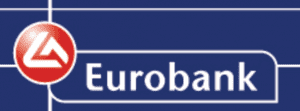 Global Economic & Market Outlook – Focus Notes (Monday, September 25, 2017)
Global Economic & Market Outlook – Focus Notes (Monday, September 25, 2017)
Angela Merkel won fourth term as German Chancellor; likelihood of protracted coalition talks ahead
September 24th federal election outcome. As expected, Angela Merkel won her fourth term as German Chancellor on Sunday’s September 24th federal election. The Conservative Christian democratic political alliance, consisting of Angela Merkel’s centre-right Christian Democratic Union (CDU) and the Bavarian sister-party Christian Social Union (CSU) remained the strongest party, but it got only 33.0% of the total vote, its second lowest electoral showing since 1948, compared to 41.5% in the 2013 election, and less than c. 36% implied by a number of pre-election opinion polls. The Social Democratic Party SPD – the current coalition partner — came second with 20.5%, its worst post-World War II performance, a disappointing result for party leader Martin Shultz who immediately announced the party’s intention to go into opposition in an attempt to rebuild its credibility and has no intention to renew the so-called grand coalition with Merkel’s CDU/CSU. Public support for the CDU/CSU and the SPD has come down to c. 54% from around 90% in the 1970s. On the contrary, the far-right populist Alternative fűr Deutschland AfD performed better than the majority of preelection polls suggested, purportedly capitalizing on the resentment of Angela Markel’s handling of the 2015-2016 refugee crisis. AfD secured 12.6%, well above the parliamentary threshold of 5% becoming the first far-right party making it into Bundestag in more than half a century. The liberal Free Democratic Party (FDP) came fourth and managed to re-enter into Bundestag with 10.7%, after falling below the 5% threshold in 2013 for the first time since 1949. The leftist party Die Linke and the centre-left Green party followed suit with 9.2% and 8.9%, respectively. All in all, six political parties are poised to enter the Bundestag, the most since 1953, compared to four in the 2013 ballot. Voter turnout increased to 75.9%, compared to 71.5% in 2013, and an historic low of 70.8% in 2009.
Viewers can log herebelow and read the full report: Global Focus Note_September 25_German elections





